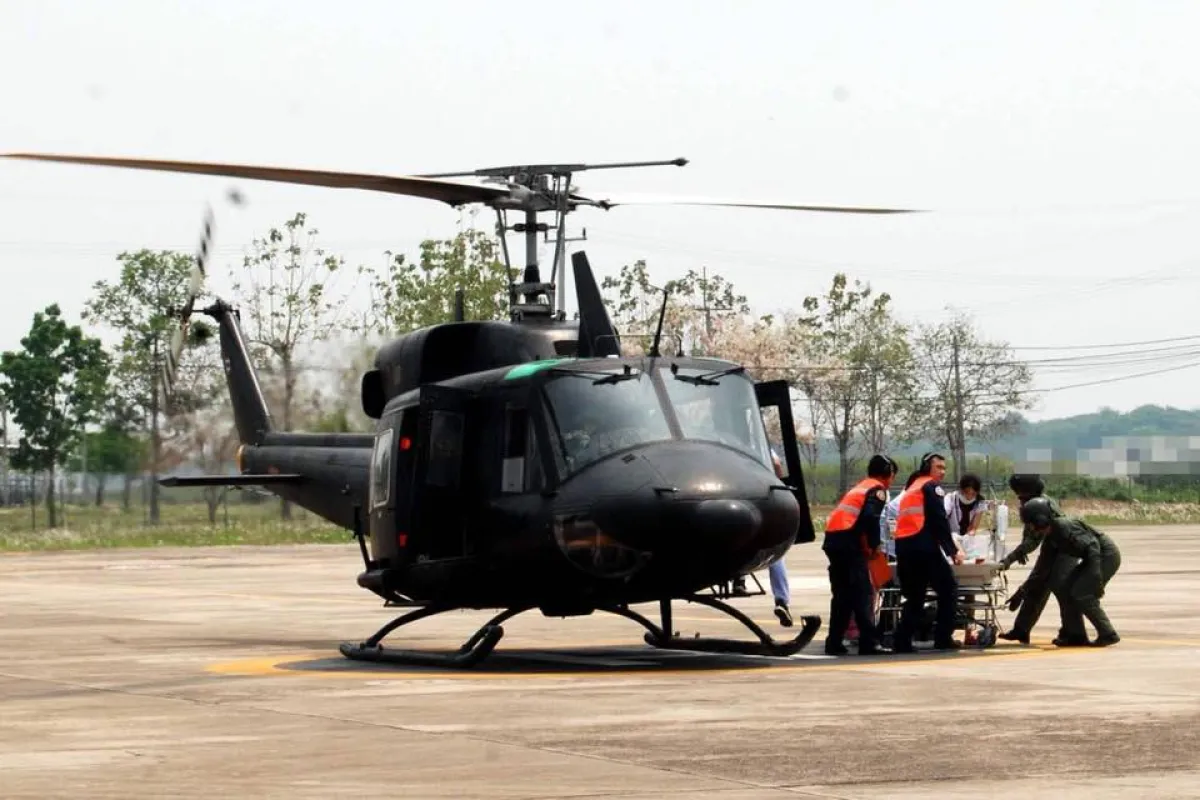
The Air Patient Assistance Program is an emergency referral operation project of the National Institute of Emergency Medicine (NIEM). In 2009, the Thai Sky Doctor aircraft project for emergency patient referral began, with agreements made with many agencies, both government and private, to request the use of aircraft to transport patients by air, particularly in remote areas, backcountry, mountains, seas, and islands, so that they could be treated quickly.
It is divided into two types:
From 2010 to 2019, the Thai Sky Doctor operated 409 flights. There were 80 primary missions to pick up emergency patients at the scene of the accident, There were 329 secondary missions, which comprised 309 transfers of emergency patients to a medical facility with greater potential for treatment than the original hospital, with a specialized medical team and equipment ready to treat the patients, and 20 “medical logistics” flights, which move medical personnel, medical equipment, physicians, and medical specialists when they need to transplant important organs to help emergency patients awaiting organ donation. The cost of such operations is supported by the emergency medical fund.
The current Sky Doctor operating system has a mission to transport critically ill or urgently ill patients who exceed the capabilities of emergency operations units or local medical facilities, with organ transport to emergency patients, including the transporting of medicines and medical supplies, and medical personnel to assist emergency patients in remote or dangerous areas affected by disasters. According to previous data, Mae Hong Son, Tak, Kanchanaburi, and Surat Thani are the provinces that most frequently use aircraft to transport emergency patients in remote areas.
On 18 January 2023, a Thai Sky doctor assisted in quickly taking an emergency injury from a fall in the area of Koh Mak Subdistrict, Koh Kood District, Trat Province, by helicopter for treatment at Prapokklao Hospital, Chanthaburi Province, so the victim was able to receive surgery and was saved. Success stories like this build confidence among tourists and the public that, in the event of an emergency, regardless of where it occurs, they will receive fast and quality services.
NIEM has also collaborated with the Royal Thai Police in the operation of the emergency medical system and other related matters in following ways: